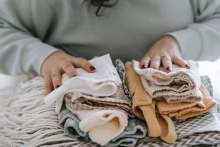Could you tell our readers what you do and how you got into it?
I’m a writer, stylist and consultant. There’s no clear cut path to where I am today and it was made that much harder by the inherent privilege that exists within the framework of the fashion industry.
The best explanation I could have is that I wrote for free, a lot, on the internet. Which is a privilege within itself. Even when working in other jobs, I was writing on the side. But if you can do that and hang on for 10+ years… just kidding it shouldn’t have to be that way. It’s somewhat unfair and my position feels like a fluke when all the barriers were set out against me.
How do your ethics come into your work?
I feel like I’ve worked too hard to be at this point, to compromise what I have to say and do. The truth is on Instagram (where I write) there’s a lot of beautiful imagery but only in the last few years have folks started to speak truth to power. It’s tricky territory with sponsorships and brands but for me, it just seemed better to not get tangled with payment and brands if it meant I couldn’t speak about wrongdoings and things like racism and colonialism.
What do you think is most problematic about the fashion industry?
That all of our systems are built on colonialist systems which are harming the Earth and exploiting marginalized people. We have to start to rebuild in a major way.
With the pandemic, fast fashion seems to be more in the spotlight than ever before. Do you think this will lead to permanent changes to the industry?
I think a lot of people are slowing down and thinking about the way they’re consuming. And that’s so important. I hope that people will not only think about their individual impact but also the impact that major corporations are contributing to climate emergency.










